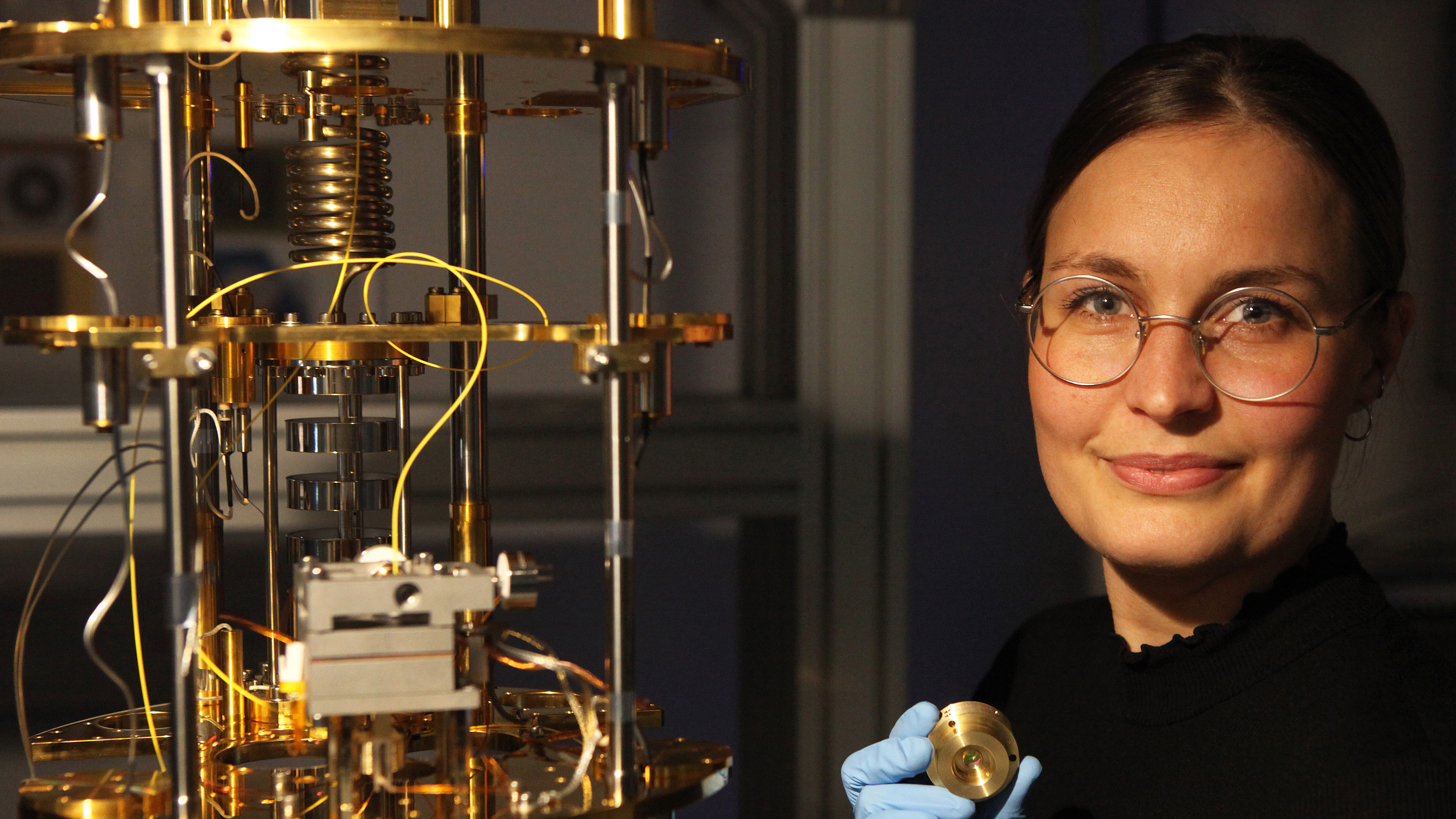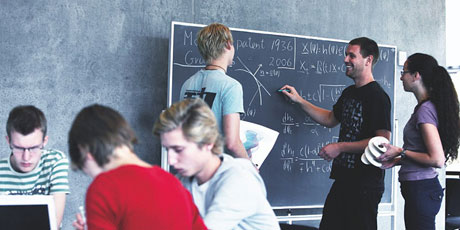At DTU Physics, we perform research, teaching, and innovation in experimental and theoretical physics with the overall aim to benefit society. We contribute to the transition to sustainable energy via research and innovation in catalysis, Power-to-X, and nuclear energy solutions. We design and develop new functional materials, contribute to advances in geosciences and life sciences, and we develop and exploit quantum physics and quantum technologies.
Show all news
Show all news
Show all events
Show all events
Read more about the nearly 200 years old history of DTU, and how it contributes to the betterment of society.
Read about the history of DTU See the historical collection See the educational material of technological history


 Research sections Our research areas include surface physics, catalysis, materials physics, computational physics, plasma physics, nuclear physics, continuum physics, biophysics, luminescence physics, and quantum technology.
Research sections Our research areas include surface physics, catalysis, materials physics, computational physics, plasma physics, nuclear physics, continuum physics, biophysics, luminescence physics, and quantum technology.  Research centers Our DTU research centers collaborate across several departments at DTU. Topics include advanced microscopy and nuclear energy technology.
Research centers Our DTU research centers collaborate across several departments at DTU. Topics include advanced microscopy and nuclear energy technology.  Research facilities We use and develop state-of-the art instrumentation in our research labs and travel to large-scale international research infrastructures e.g. synchrotrons, neutron sources, and fusion devices.
Research facilities We use and develop state-of-the art instrumentation in our research labs and travel to large-scale international research infrastructures e.g. synchrotrons, neutron sources, and fusion devices.  Teaching and experiments We have experiments integrated in many of the courses to support students’ learning and innovative skills. We offer more than 70 courses on BSc-, MSc- and PhD levels in topics related to physics and our research areas.
Teaching and experiments We have experiments integrated in many of the courses to support students’ learning and innovative skills. We offer more than 70 courses on BSc-, MSc- and PhD levels in topics related to physics and our research areas.  Education BSc & MSc We are actively engaged in the Engineering Physics BSc and MSc educations and contribute to several other educations with courses and projects. Read more here.
Education BSc & MSc We are actively engaged in the Engineering Physics BSc and MSc educations and contribute to several other educations with courses and projects. Read more here.  PhD education At DTU Physics we have about 100 PhD students engaged in our research sections and centers. Read more here about how it is to be a PhD student and explore your opportunities here.
PhD education At DTU Physics we have about 100 PhD students engaged in our research sections and centers. Read more here about how it is to be a PhD student and explore your opportunities here.  MWR Mechanical Workshop Risø MWR is a forging and machine workshop that performs workshop tasks with strong professional skills and latest machine technologies, – all the way from quite simple tasks to more complex development projects.
MWR Mechanical Workshop Risø MWR is a forging and machine workshop that performs workshop tasks with strong professional skills and latest machine technologies, – all the way from quite simple tasks to more complex development projects.  02 October 2025 DTU researchers receive Villum Experiment Grant 2025 The Villum Foundation awards 52 innovative research projects with grants under the Experiment programme.
02 October 2025 DTU researchers receive Villum Experiment Grant 2025 The Villum Foundation awards 52 innovative research projects with grants under the Experiment programme.  25 September 2025 Proven quantum advantage: Researchers cut the time for a learning task from 20 million years to 15 minutes Amid high expectations for quantum technology, a new paper in Science reports proven quantum advantage. In an experiment, entangled light lets researchers learn a system's noise with very few measurements.
25 September 2025 Proven quantum advantage: Researchers cut the time for a learning task from 20 million years to 15 minutes Amid high expectations for quantum technology, a new paper in Science reports proven quantum advantage. In an experiment, entangled light lets researchers learn a system's noise with very few measurements.  14 August 2025 At DTU students learn physics with both heads and hands Lectures and step-by-step tutorials are out the door in the experimental learning spaces in building 306 at DTU Lyngby Campus. Instead, students collaborate to organize open-ended physics experiments, enhancing their learning.
14 August 2025 At DTU students learn physics with both heads and hands Lectures and step-by-step tutorials are out the door in the experimental learning spaces in building 306 at DTU Lyngby Campus. Instead, students collaborate to organize open-ended physics experiments, enhancing their learning.  27 June 2025 DTU will use AI supercomputer Gefion to find materials for next-gen solar cells With a DKK 40 million grant from the Novo Nordisk Foundation, DTU Compute, DTU Physics, and DTU Nanolab will collaborate over the next six years with the national AI supercomputer Gefion. Their goal is to discover new materials that enhance light absorption in thin-film solar cells – paving the way for more efficient and cost-effective solar energy solutions.
27 June 2025 DTU will use AI supercomputer Gefion to find materials for next-gen solar cells With a DKK 40 million grant from the Novo Nordisk Foundation, DTU Compute, DTU Physics, and DTU Nanolab will collaborate over the next six years with the national AI supercomputer Gefion. Their goal is to discover new materials that enhance light absorption in thin-film solar cells – paving the way for more efficient and cost-effective solar energy solutions.